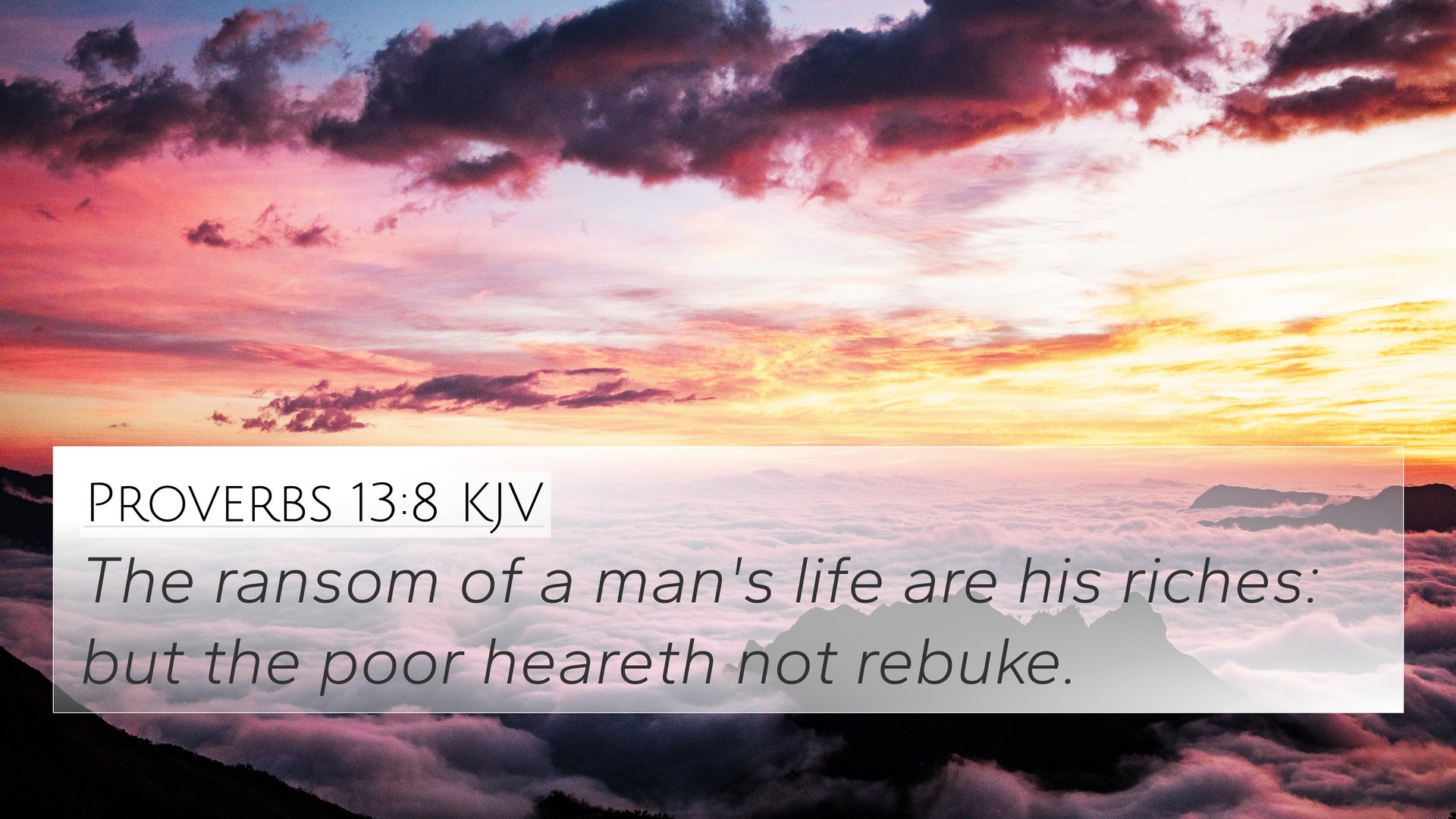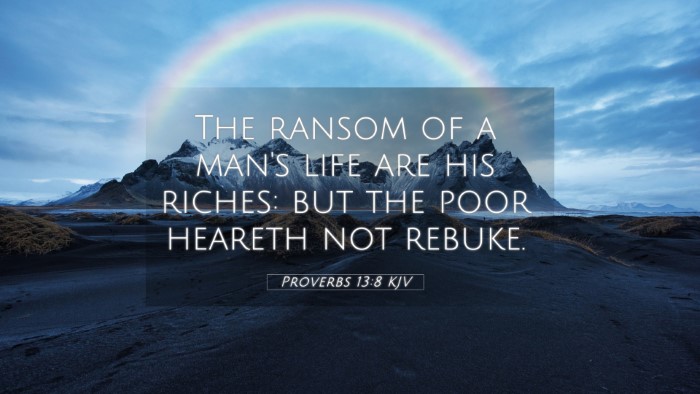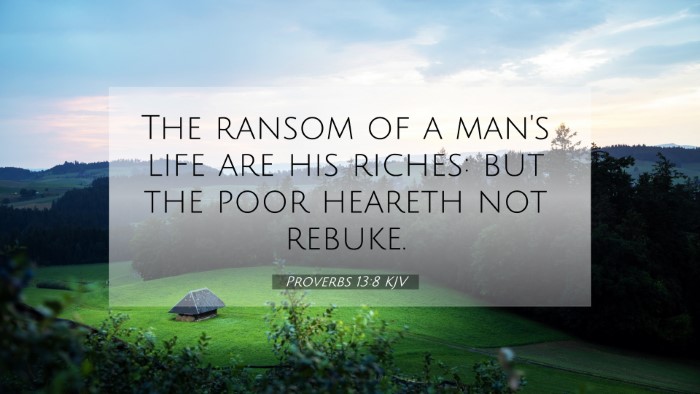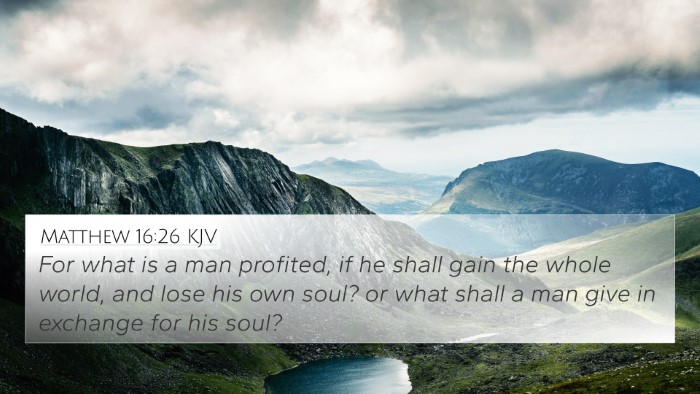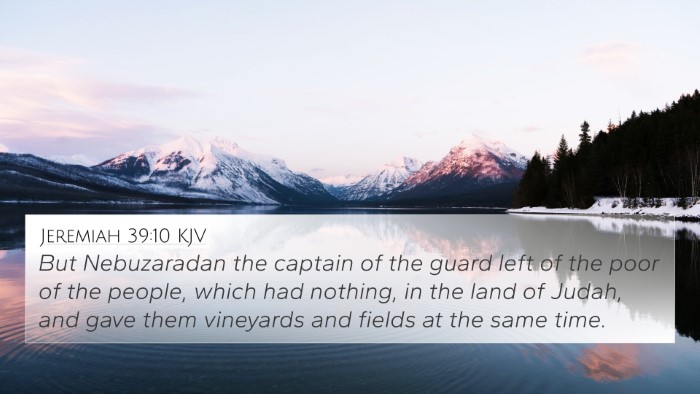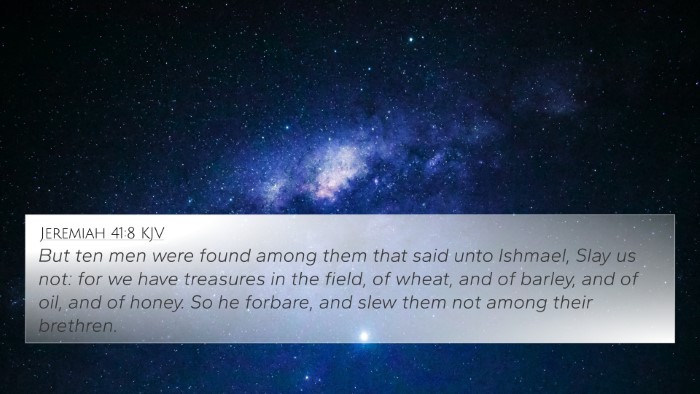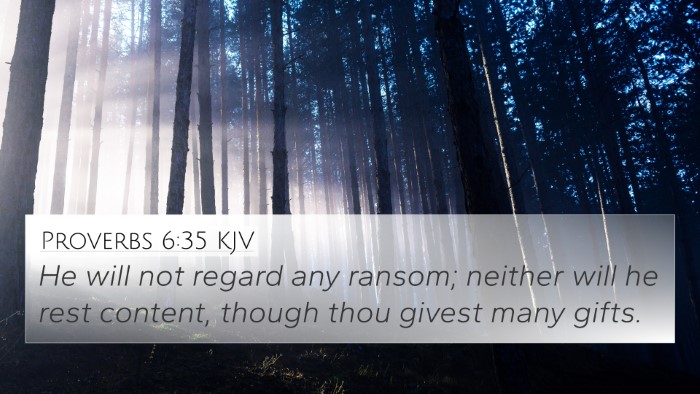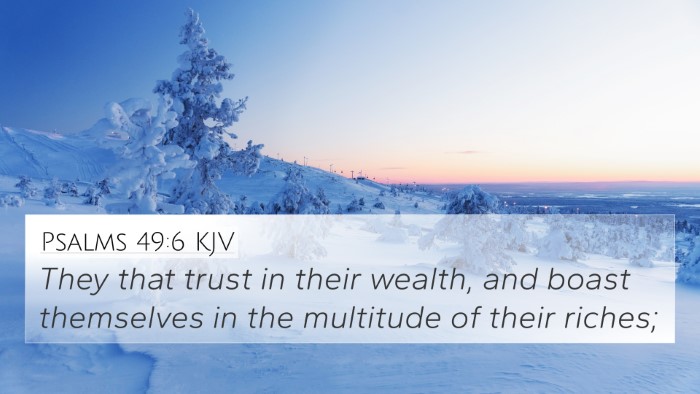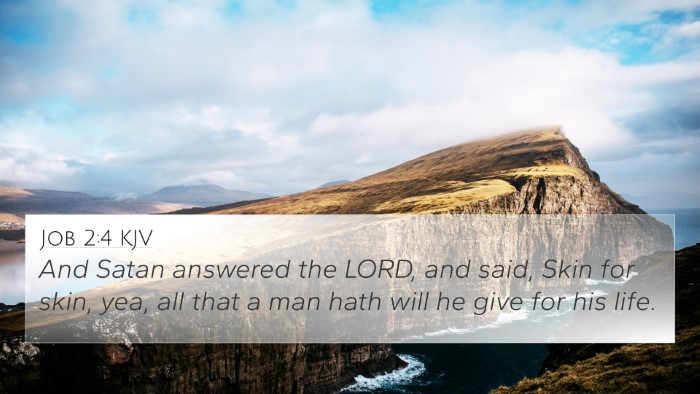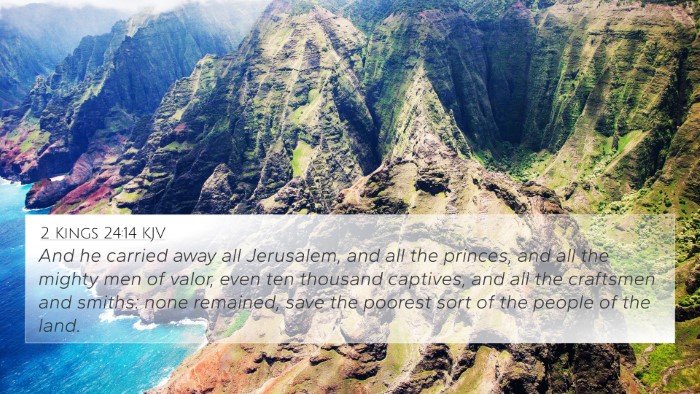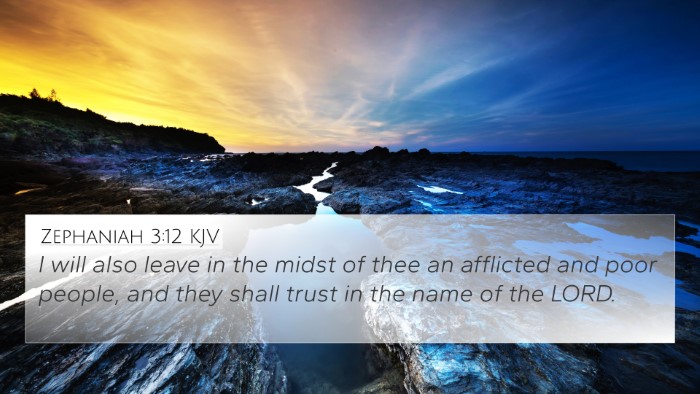Understanding Proverbs 13:8
Proverbs 13:8 states, "The ransom of a man's life are his riches: but the poor heareth not rebuke." This verse explores the concepts of wealth, value, and the societal implications of both riches and poverty. It highlights important moral and spiritual lessons that can be unearthed through careful cross-referencing with other Biblical texts. Below, we delve into the meanings and interpretations of this verse using insights from established public domain commentaries.
Verse Interpretation
The essence of this verse suggests that a man's wealth can serve as a protection or a means of redemption in his life. The wealthy may avoid certain dangers or consequences because of their riches, while the poor often face a lack of resources and might not have the privilege of rebuke or correction. This theme resonates with various aspects of human experience, indicating a dichotomy between the rich and the poor.
Commentary Insights
-
Matthew Henry's Commentary:
Henry notes that wealth can shield individuals from harm, suggesting that financial resources can provide a form of salvation from life's hardships. However, he warns that this reliance on riches may lead to a sense of false security.
-
Albert Barnes' Notes:
Barnes emphasizes the idea that those who are poor do not always face correction or admonition, as they might not be in a position to be rebuked due to their status. This challenges our understanding of accountability and responsibility in social contexts.
-
Adam Clarke's Commentary:
Clarke depicts the contrast between wealth and poverty, suggesting that riches can sometimes protect a person from the consequences of their actions, while the poor are often dismissed or overlooked when it comes to guidance or criticism.
Bible Verse Cross-References
To enhance understanding, let us explore some Bible verse cross-references that relate to the themes presented in Proverbs 13:8:
- Proverbs 19:7 - "All the brethren of the poor do hate him: how much more do his friends go far from him!"
- Proverbs 22:2 - "The rich and poor meet together: the LORD is the maker of them all."
- Proverbs 10:15 - "The rich man's wealth is his strong city: the destruction of the poor is their poverty."
- Matthew 19:24 - "And again I say unto you, It is easier for a camel to go through the eye of a needle, than for a rich man to enter into the kingdom of God."
- James 2:5 - "Hearken, my beloved brethren, Hath not God chosen the poor of this world rich in faith, and heirs of the kingdom which he hath promised to them that love him?"
- Luke 6:20 - "And he lifted up his eyes on his disciples, and said, Blessed be ye poor: for yours is the kingdom of God."
- 1 Timothy 6:9-10 - "But they that will be rich fall into temptation and a snare, and into many foolish and hurtful lusts, which drown men in destruction and perdition."
Thematic Connections
Through the lens of thematic Bible verse connections, we see that Proverbs 13:8 relates to broader themes within the Bible, particularly concerning the moral implications of wealth and the position of the poor:
- Wealth as a Double-Edged Sword: Wealth offers protection but can lead to moral decay.
- Poverty and Social Justice: The plight of the poor calls for compassion and intervention.
- Accountability and Correction: Wealthy individuals may escape rebuke, raising questions about equity in social admonition.
Practical Application
Understanding Proverbs 13:8 invites readers to reflect on their values and approaches to wealth and poverty. Are we, like the wealthy, using our resources for good? And how do we engage with those who are less fortunate? The verse challenges us to think critically about social responsibility and moral conduct.
Bible Cross-Reference Tools
For deeper exploration, consider utilizing various tools for Bible cross-referencing, such as:
- Bible concordances that provide keyword-based references.
- Bible cross-reference guides that offer thematic connections.
- Online Bible reference resources for quick access to related scriptures.
Conclusion
Proverbs 13:8 serves as a poignant reminder of the complex relationship between wealth, responsibility, and societal roles. When we cross-reference this verse with other scriptures, we can gain a richer understanding of its implications for our lives and communities. Through diligent study, we find connections between the Old and New Testament that deepen our comprehension of divine principles.
